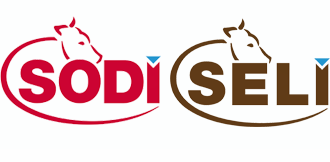Testimonials
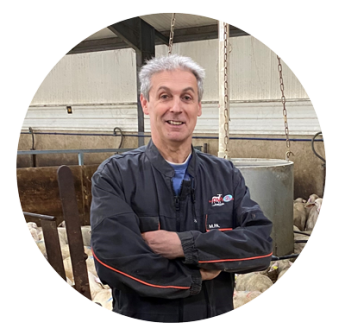

Pascal MAS, sheep breeder and technician at Valence d'Albi in the TARN region (81)
What are the problems encountered in autumn?
In autumn, we see an increase in health problems. When they arrive, some lambs are weak and stressed due to weaning and transport. What's more, when the cold weather arrives, we know that the condition of lambs, especially those already weak, will deteriorate.
To prevent or remedy these problems, we are limited in terms of traditional medicine and therefore prefer to avoid these solutions. We prefer to provide our animals with minerals, vitamins and trace elements to keep them in good health.
Setting up SodiRespi and results obtained
I decided to test the Sodi Respi block on sickly lambs destined for fattening for a period of 4 to 6 months, starting in December. These blocks are attached with a chain. I used 1 block for every 100 lambs.
The Sodi Respi lasts an average of 1 week, whereas pure salt blocks last 3 weeks under the same conditions. It would therefore seem that the Sodi Respi block is 3 times more palatable than a pure salt block.
At the end of the period, we noticed that the lambs were more vigorous and had a better appetite. This block provides a blend of minerals and essential oils which, combined with a vitamin supplement, had a beneficial effect on the general condition of our lambs.
I'll be happy to use the Sodi Respi block again next year for fattening our sheep.
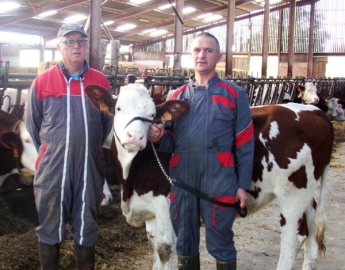
Jean Pierre Debost, dairy farmer, Champ Noblet GAEC farmers' partnership :
"I give my 90 cows SodiPatur’ail licks all the time. When the cows ready for milking, you can see that they're really calm. There are just as many flies but they don't bite the cows. We also tried a pure salt and a garlic salt lick but the flies came back straight away."

Laurent Bouscarat, manager of Coopérative de Transhumance et d'Amélioration des Structure Agricoles, Cantal (15)
"It's been 3 years now since we swapped our anti-parasite treatment for SodiPatur'Ail lick blocks. We use them throughout the season for around 400 heifers aged between 1 and 2 years.
Since we started using SodiPatur'Ail licking blocks, our piro and keratitis problems have been greatly reduced. The blocks have proved effective despite a rather mild winter, which facilitated the proliferation of flies and ticks. I have no regrets about switching to this more natural preventive treatment, and look forward to using the blocks again this summer."


Daniel Donde, dairy farmer, Soiriat GAEC farmers' partnership :
"I use several licks for my 100 cows all the time. We've had fewer ticks and no babesiosis. We've just as many flies but they're aren't swarms of them like some years. Before, the cattle had lots of ticks on their heads or teats. Their urine turned red, so we called the vet out at least twice a year. This year, we've had no cases of babesiosis."
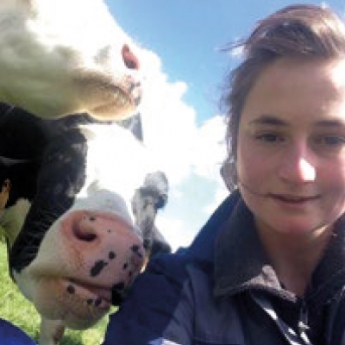
Sabine Houlet, farmer at La Ferme de l’Oraille :
"We tested garlic licks on our dairy herd but I was wary about the eventual effects on the taste of our dairy products. We know that fat absorbs smells and flavours. First, I tried our cream, which, for me, was the product most prone to taking on different tastes but I didn't notice any effect. Then we tasted our fromage blanc and yogurts, which also came back negative. Using these licks didn't alter the taste or smell of our products compared to our usual production."

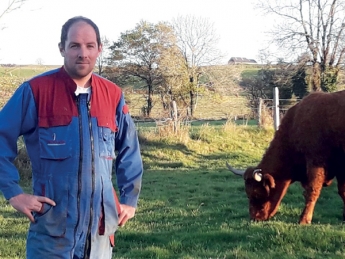

Guillaume Louvradoux, Salers dairy farmer, Aubrac and manager of the Fontages farm warehouse :
"I saw for myself, when I used one 20 kg SodiPatur’ail lick for 20 cows and their calves outside for 2 weeks. We used it very early in the season and continuously.
The findings were very encouraging, with:
• far fewer flies on the cows
• hardly any, or no, ticks
• and no "pinkeye" on the calves and heifers
SodiPatur’ail also coped very well during the rain too."
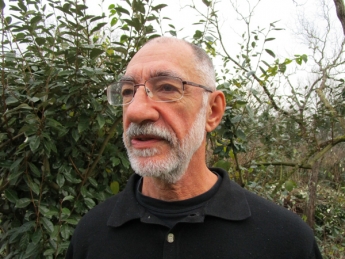
Jacques Auger, scientist at CNRS, Faculté des sciences de Tours :
Garlic produces secondary substances that are extremely active against other living organisms, be it microorganisms (bacteria, fungi, etc.), insects and even other animals. This production of secondary substances, by their smell, is repulsive or even insecticidal by its consumption. Virtually all organisms are sensitive to garlic substances.
This effect on insects has been studied in laboratories. The repellent effect of garlic acts and works on all types of insects such as flies. It can not be said that there is one group of insects that is more sensitive than another.

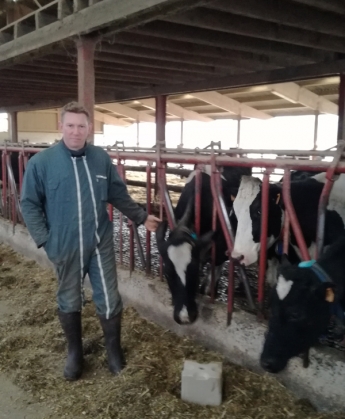

Florent Claudel, organic dairy farmer and yogurt producer, Vosges :
"Vets tell us not to skimp on minerals, especially for dairy herds as a cow with a mineral deficiency can have higher cell counts in milk and fertility problems. Preventive measures are key in organic farming and preferable compared to remedial treatments. You should give cows their full potential before encountering problems and find alternatives to antibiotic treatments. My solution to
prevent grass staggers is to give my cows magnesium prior to putting them out to pasture. I found it easiest to give them magnesium using SodiMag licks."
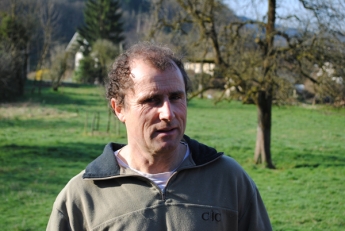
Loïc Bertrand, organic dairy farmer, Savoie :
"Every farm should supplement their feeds as the cattle can't get what they need from basic feeds alone. Unfortunately, some organic farms tend to neglect salt, mineral and trace element supplements and this can create deficiencies that are hard to put right. They can also lead to conditions, such as immunity, fertility and limping. We give salt in various forms to all our animals. We use 25 kg sacks of organic farming-approved Salin salt for our milking cows. They have 40 g per day per cow, mixed in with their feed and we also add 40 g of minerals to the feed mixer. For heifers, we put out 12 kg organic farming-approved Salin salt licks."

Sébastien Brun, organic dairy farmer, Hautes-Alpes :
" We can only administer three applications a year for organic herds, so it's vital that they are in good shape to avoid diseases and as such, treatments! It also costs less to buy tubs or licks than call out the vet! Obviously, this goes for conventional herds too. So, to sum up, I prefer licks to the vet! "
